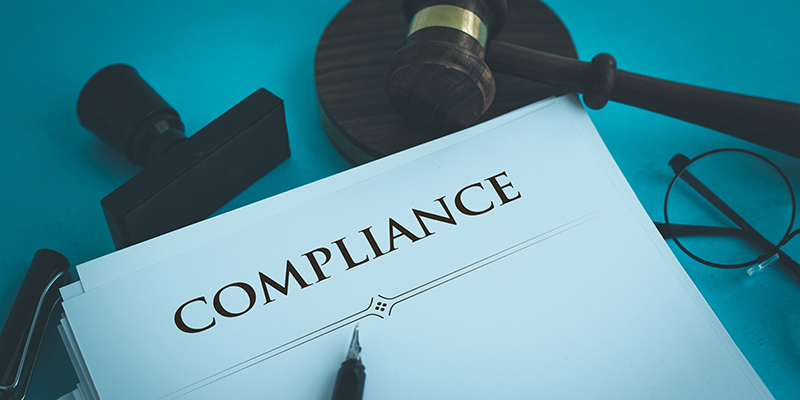The Corporate Transparency Act HOA requirements are a crucial set of guidelines that community associations must follow to comply with new federal regulations. Board members should these requirements to ensure compliance and avoid severe penalties for their HOA.
What is the Corporate Transparency Act?
The Corporate Transparency Act (CTA) was passed by Congress in 2021 as an amendment to the Bank Secrecy Act. The primary aim of the CTA is to help law enforcement agencies identify and track suspicious financial activities. These include terrorist financing and money laundering. The intention is to enhance national security.
To achieve this, the CTA mandates that certain entities report information about their beneficial owners to the U.S. Department of Treasury’s Financial Crimes Enforcement Network (FinCEN). Homeowners associations also fall under this category.
Who Must Comply With the Corporate Transparency Act?
The CTA applies to a broad range of entities, including corporations, limited liability companies (LLCs), limited partnerships, statutory trusts, business trusts, and non-U.S. corporations registered to do business in the United States. Entities that file with the Secretary of State or a similar office under state law (or an Indian tribe) must also comply.
This extends to community associations such as condominiums and homeowners associations. Most HOAs are incorporated as nonprofit organizations.
Corporate Transparency Act HOA Requirements
Homeowners associations must adhere to several specific requirements under the CTA, including reporting beneficial ownership information (BOI). Understanding the definitions of beneficial owners and company applicants, knowing where and when to submit BOI reports, and complying with filing deadlines are integral.
Requirements for BOI Reporting
Homeowners associations must include the following information in their BOI reporting to FinCEN:
- Business name
- Full legal names, current home addresses, birthdates, and identification numbers (state ID, passport, or driver’s license) of the beneficial owners
- If applicable, full legal names, current home addresses, birthdates, and identification numbers (state ID, passport, or driver’s license) of company applicants
What are Beneficial Owners?
Beneficial owners are individuals who have significant control over the association or hold at least 25% ownership. This includes board members and developers or declarants who own 25% of the separate interests.
Individual unit owners are generally not considered beneficial owners unless they meet the 25% ownership requirement. Intermediaries, custodians, agents, nominees, employees without senior officer roles, individuals with future inheritance rights, minor children, and creditors do not fall under the classification of beneficial owners. They serve as exemptions.
What are Company Applicants?
 Company applicants are the individuals responsible for creating or registering the company. If multiple persons are involved, they direct or control the filing.
Company applicants are the individuals responsible for creating or registering the company. If multiple persons are involved, they direct or control the filing.
For community associations established or registered on or after January 1, 2024, filing the company applicant information is mandatory. Each community can designate up to two company applicants. They may be third-party reporting companies, HOA board compliance officers, or HOA general counsel. Experts recommend opting for a third-party reporting company due to their reliability and accuracy in filing.
Where to Submit BOI Report
Homeowners associations must submit the Beneficial Ownership Information (BOI) report to FinCEN. FinCEN collects and maintains the BOI reports in a secure and confidential database.
Deadline for Submitting BOI Report
The CTA became effective on January 1, 2024. Existing associations must comply and file their BOI reports by January 1, 2025. Meanwhile, new entities created on or after January 1, 2024, have 30 days to register with FinCEN. The initial compliance deadline for new entities is March 31, 2024.
An HOA must file any changes within 30 days of becoming aware of the change. These changes can include additions, amendments, and corrections. Examples include board member replacements, changing addresses, etc.
Consequences of Non-Compliance
Non-compliance with the CTA can lead to severe penalties. Initially, reporting violations incur fines of $500 per day. However, FinCEN adjusts the amount annually for inflation. As of this writing, the fine is $591 per day.
Willful non-compliance or violation of BOI requirements can result in penalties of up to $10,000 and two years of imprisonment. Therefore, board members must meet all Corporate Transparency Act HOA requirements to avoid these harsh consequences.
Exemptions to the Corporate Transparency Act
Certain entities are exempt from the CTA requirements. These exempt entities include banks, credit unions, insurance companies, venture capital firms, investment companies, accounting firms, public utilities, clearing agencies, securities exchanges, and more. Tax-exempt organizations under the IRS, such as community associations with 501(c) status, are exempt. However, they must prove their tax exemption eligibility when filing.
The Importance of the Corporate Transparency Act HOA Requirements
Complying with the CTA is vital for several reasons. Firstly, it helps maintain transparency and accountability within homeowners associations. By reporting beneficial ownership information, HOAs contribute to the broader goal of preventing illicit financial activities such as money laundering and terrorist financing.
Secondly, compliance helps avoid the severe penalties associated with non-compliance, protecting the association from financial and legal repercussions. Lastly, adhering to these requirements can enhance homeowners’ trust and confidence in the governance of their community.
The Final Word
Understanding and adhering to the Corporate Transparency Act HOA requirements is crucial for community associations. The CTA aims to enhance national security by preventing illegal financial activities. Compliance is mandatory for many entities, including HOAs. By familiarizing themselves with the requirements for BOI reporting, HOAs can ensure they meet their obligations and avoid the severe penalties associated with non-compliance.
Condo Manager offers automated HOA management solutions to homeowners associations, condominiums, and HOA management companies. Call us today at (800) 626-1267 or contact us online to request a free demo!
RELATED ARTICLES:
- Is An AI HOA Management Software Better Nowadays?
- HOA Social Media Account Best Practices
- HOA Audit: What Can It Say About Your HOA’s Financial Health?



